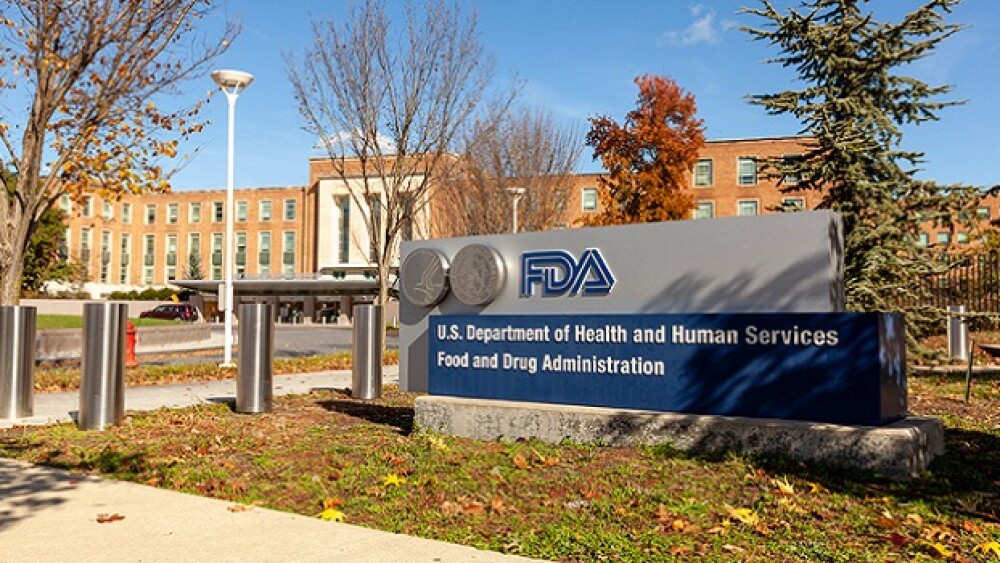Faraday Pharmaceuticals, Inc. announced today the publication of results from its Phase 2 trial of FDY-5301 for the treatment of reperfusion injury following an ST-elevation myocardial infarction (STEMI) in the January 15, 2022 issue of the International Journal of Cardiology.
SEATTLE, Dec. 27, 2021 (GLOBE NEWSWIRE) -- Faraday Pharmaceuticals Inc., a muscle health-focused biopharmaceutical company developing therapeutics to treat patients experiencing potentially life changing critical illness, announced today the publication of results from its Phase 2 trial of FDY-5301 for the treatment of reperfusion injury following an ST-elevation myocardial infarction (STEMI) in the January 15, 2022 issue of the International Journal of Cardiology. Data from the study – known as Iocyte AMI – demonstrated the treatment was well-tolerated and provided encouraging signals of potential efficacy in minimizing cardiac damage.
In the study, 120 patients were randomized to receive placebo or FDY-5301 (0.5mg/kg, 1.0 mg/kg or 2.0 mg/kg), administered intravenously as a single-dose treatment prior to reperfusion therapy with primary percutaneous coronary intervention (pPCI) for acute STEMI. Outcome measures included 14-day arrhythmia monitoring and magnetic resonance imaging (MRI) of infarct size and cardiac function at three months post-treatment.
Results show that treatment with FDY-5301 was well-tolerated, with no evidence of increased risk of clinically significant arrhythmias at doses up to 2 mg/kg. In addition, encouraging signs of efficacy were observed. Median infarct size (as a proportion of left ventricular volume) in the 2mg/kg FDY-5301 group was 8.5% compared to 14.9% on placebo. Median left ventricular ejection fraction was 53.9% for patients on placebo compared to 63.2% for patients on 2mg/kg FDY-5301. The study was not powered for these secondary efficacy outcomes, so these improvements did not reach statistical significance.
“It has long been shown that the size of an AMI is not only determined by ischemic damage, but also by the reperfusion itself,” said Dr. Stephen Hill, Faraday’s Chief Executive Officer. “We were very excited to see data suggesting that FDY-5301 may act to reduce this damage.”
Based on this data, Faraday plans to start enrollment in the first half of 2022 into a randomized, double-blind, placebo-controlled Phase 3 study of intravenous FDY-5301 in patients with an anterior STEMI. The study is powered to show a 30% relative reduction in cardiovascular (CV) death and heart failure with a two-sided p-value of less than 0.05, which, if successful, would support a regulatory submission for marketing approval in the United States. Demonstrating a 30% relative reduction in CV death and heart failure in anterior STEMIs could form the basis of a generalizable label for all STEMI patients undergoing pPCI.
Professor Keith Channon, Director of R&D for Oxford University Hospitals and a principal investigator for the both the Phase 2 and Phase 3 studies, commented that, “In addition to being easily administered without interrupting the flow of time critical activities needed in the emergency setting of an acute myocardial infarction, FDY-5301 showed potentially encouraging signs of efficacy in reducing infarct size that merit proceeding into a Phase 3 study looking at clinical outcomes.”
About STEMI and Reperfusion Injury
An estimated 810,000 Americans will suffer a heart attack in 2021. A STEMI is a heart attack that occurs when a coronary artery is blocked, stopping blood flow to an area of the heart. This area becomes ischemic due to lack of oxygen and requires immediate treatment to minimize the amount of damage caused. Standard treatment of STEMI involves pPCI, during which a catheter is inserted into the artery to remove the blockage and restore blood flow. Reperfusion injury is the damage done when the oxygen-rich blood supply returns to the ischemic area. This damage contributes a significant portion of the total cardiac muscle damage suffered as a result of a heart attack.
About FDY-5301
FDY-5301 is an elemental reducing agent containing sodium iodide for which Faraday has obtained method of use patent protection in major markets worldwide. It works to catalytically destroy hydrogen peroxide, which is generated as a response to acute injury and contributes to loss of muscle mass and function. Preclinical studies of FDY-5301 have demonstrated its ability to reduce cardiac and skeletal muscle injury.
About Faraday
Faraday Pharmaceuticals® is a Seattle-based biopharmaceutical company founded by Dr. Mark Roth of the Fred Hutchinson Cancer Research Center and backed by an investor group led by ARCH Venture Partners and Polaris Partners. With a clinically and commercially experienced senior leadership team, the company is focused on treating and preventing muscle injury.
For more information, visit www.faradaypharma.com.
Contact:
Brian Blackman
Chief Financial Officer
bblackman@faradaypharma.com
(206) 492-5319





